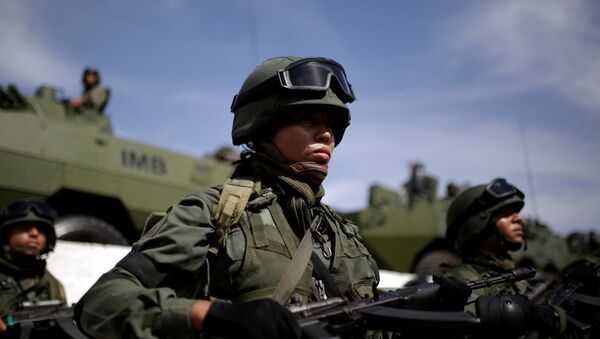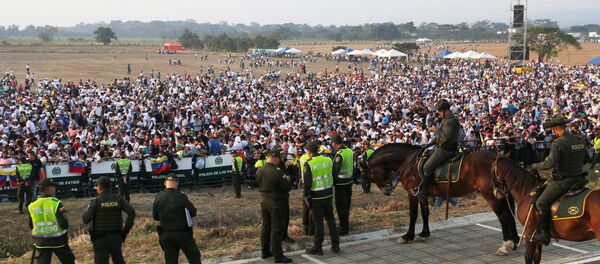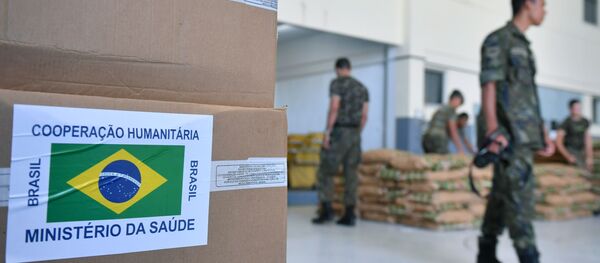Sputnik: Self-proclaimed leader Guaido said it was time to propose "all options" to secure the freedom of Venezuela. What options are those? How likely is a military intervention?
Dimitris Pantoulas: When Guaido speaks about all possible options being on the table it resembles similar declarations that President Trump has made in the past. This is a subtle way to say that foreign military intervention is not an unlikely scenario.
The possibility of military intervention is rising by the day, especially when all the other possible solutions are failing. The unwillingness of the Venezuelan government and also from radical domestic and international oppositional actors to engage in a meaningful and goal-centred negotiation process creates negative conditions for a peaceful solution. Today fewer people want a constitutional solution that includes participatory mechanisms (i.e. elections and referendums) than a few months ago, which is a shame.
READ MORE: 'Don't Invade': Pink Floyd's Waters Denounces Trump, Sanders Over Venezuela
Sputnik: Bolton gave an ultimatum to Venezuela saying that either the military should embrace democracy or face sanctions and isolation. How legal is it for the Security Adviser of a different country to dictate what an independent country should do?
Sputnik: President Maduro cut off diplomatic ties with Colombia? What will be the repercussions of this step?
Dimitris Pantoulas: Very few repercussions from this step as diplomatic ties with Colombia are already at a historical nadir. It is a pity that two countries with a common history and so many things in common are facing each other. I do consider that Colombia could play a positive role to resolve Venezuela's political crisis in a peaceful way, as Venezuela did a few years ago in the peace negotiations in Colombia between the government and the FARC, something that unfortunately is not the case today.
READ MORE: US Promises More Sanctions to Venezuela, More Humanitarian Aid
Sputnik: Why are Brazil and Colombia following US instructions in this situation given the long record of US intervention in Latin American politics?
READ MORE: US to Hold Accountable Opponents to 'Restoration of Democracy' in Venezuela
Sputnik: In your view, why is the US sending humanitarian aid instead of easing the sanctions placed on Venezuela?
Dimitris Pantoulas: The US sanctions were primarily placed against government officials and of late have escalated to include large chunks of the economy in order to press Nicolas Maduro to change course. The humanitarian aid is an implicit means that the US government uses to say that Guaido will have its future support, and also the US uses humanitarian aid in order to discredit Nicolas Maduro's economic and social policies. The extended sanctions are a way of debilitating Maduro, even though that will hurt ordinary citizens, while aid is one way to strength Guaido. Still, I am not so sure if creating economic problems is the best way to help a country, while I can understand individual sanctions against corrupted officials or human rights violators.
The views and opinions expressed in this article are solely those of the speaker and do not necessarily reflect Sputnik's position.



